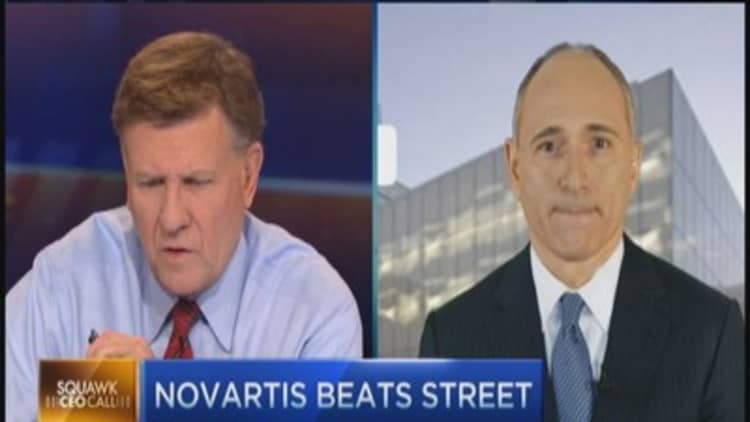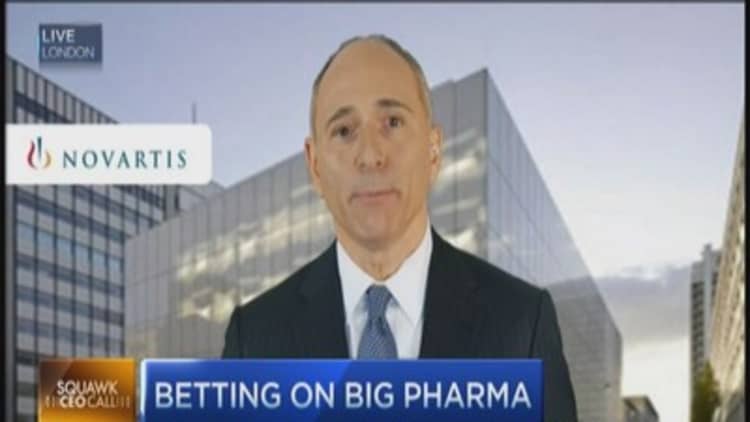
Shares of Novartis were up more than 2 percent in midday trading Tuesday after the Swiss drugmaker reported better-than-expected results, as strong sales of new products and its leukemia drug Glivec helped offset full copycat competition for its former best-selling blood pressure pill Diovan.
Novartis CEO Joe Jimenez told CNBC's "Squawk Box" the company was able to weather the patent expiration thanks to sales of three new products: multiple sclerosis treatment Gilenya, leukemia drug Tasigna and breast cancer pill Afinitor. Each saw sales grow by more than 20 percent in the third quarter.
"When that happens, you're able to more than compensate for any kind of patent expiration you're going through," said Jimenez.
Group sales at Novartis rose 4 percent year over year to $14.7 billion, while core earnings per share jumped 10 percent to $1.37. Analysts in a Reuters poll had forecast sales of $14.54 billion and core EPS of $1.31.
Third-quarter net profit jumped 45 percent to $3.24 billion, well ahead of forecasts and boosted by an $800 million pretax gain from the sale of its shareholding in Idenix Pharmaceuticals, which was bought by U.S. drugmaker Merck in June.
Novartis kept its financial outlook for the full year unchanged, predicting low-to-mid single-digit sales growth in constant exchange rate terms. It also forecasts core operating income to grow at a mid-to-high single-digit rate.
The stock is up more than 20 percent so far this year, outperforming a 15 percent rise in the European health-care sector.

Despite the impact of generic competition, expected to lop $2.7 billion off its top-line this year, the company has reported impressive data for a new heart drug known as LCZ696. Analysts have forecast multibillion-dollar sales for the product.
Jimenez said phase three trials for the drug found that it reduced both death from cardiovascular means and costs associated with hospitalization by 20 percent.
"Heart failure costs health systems over $100 billion every year," said Jimenez. "Most of it is hospitalization, so if you have a drug that can reduce hospitalization by 20 percent that's going to have a significant impact on health systems around the world and help them save money."
The company plans to complete its filing for LCZ696 with the U.S. Food and Drug Administration by December and expects to get approval and begin selling the drug next year, said Jimenez.
Novartis in April unveiled plans to exit smaller operations such as vaccines, over-the-counter drugs and animal health, while adding higher-margin cancer drugs from GlaxoSmithKline.
"I believe that in the next five years, we're going to have to be focused on businesses that have innovation power and global scale, so we've decided to focus Novartis on three big divisions: pharmaceuticals, generics and eye care," said Jimenez.
Novartis concluded the last bit of unfinished business related to the overhaul on Sunday, agreeing to sell its global influenza vaccine business to Australia's CSL for $275 million.
—Reuters contributed to this report.


